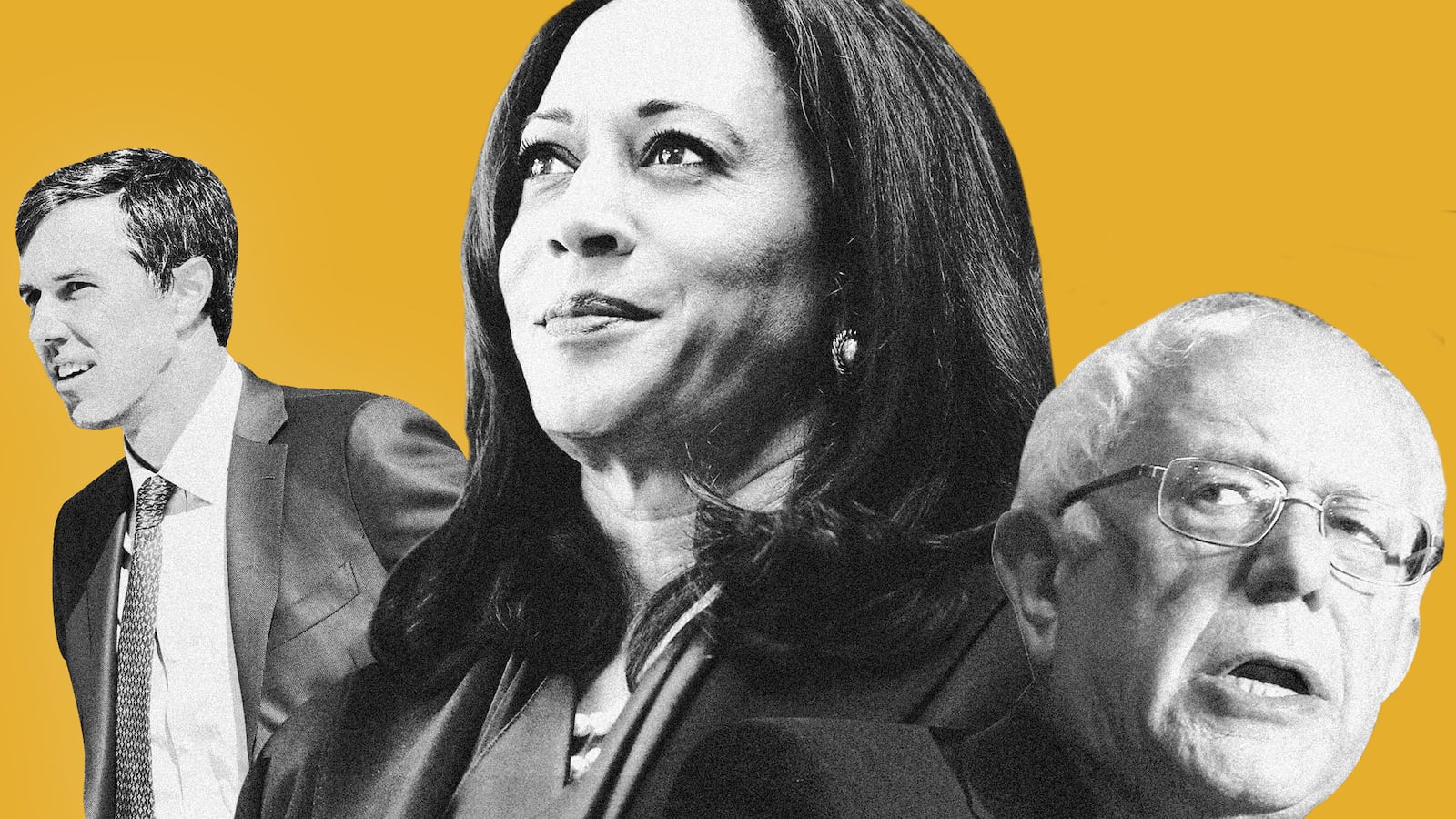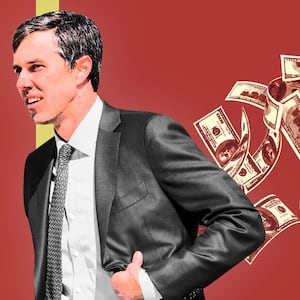Sen. Bernie Sanders (I-VT) wants to reach one million contributions before the upcoming fundraising deadline. Sen. Elizabeth Warren (D-MA) set a goal of 25,000 contributions between last Wednesday and this Sunday. Beto O’Rourke’s team asked supporters to give just $3 each if they could.
These candidates, and their dozen-plus 2020 Democratic competitors, are all racing to post large fundraising numbers by the end of the first quarter on March 31. That’s no surprise for anyone hoping to position themselves well, for what promises to be a bruising months-long primary.
But the real competition among the field is not so much who can bring in the biggest haul, but which candidate can get the most people to contribute. That’s the number that the top money people on various campaigns say they will be watching when the deadline hits.
It’s a change from cycles past, when the main news story would be the total amount raised. And it’s a reflection of how dramatically Democratic Party politics have shifted in the era of online giving, growing all the more prevalent since Barack Obama’s 2008 campaign.
A poor showing on the number of donors could be a death blow for some of the top-tier Democrats in the race, signifying that they lack the support and financial viability to make it through. The number of individual contributors, after all, demonstrates not just the extent of a campaign’s grassroots support, but also indicates a strong foundation for future fundraising, since a large pool of small donors can be hit up for cash again and again.
Amanda Litman, email director for Hillary Clinton’s 2016 campaign, told The Daily Beast that it is far easier to raise money from a prior donor than to recruit that donor in the first place.
“It’s like when you invest in a company or a girl scout that you’ve already bought cookies from,” said Litman. “You’re going to tell your friends and family to buy girl scout cookies.”
Cognizant of this, the Democratic National Committee made sure to include a number-of-donors metric for campaigns to meet in order to qualify for getting on the debate stage. And the candidates have responded by placing far more emphasis this cycle on simply getting someone to donate, even if only a small amount.
When Sanders’ campaign announced that he had brought in more than $5.9 million in the first 24 hours of his campaign, it made sure to note that 223,047 individuals had contributed to that haul. Sen. Kamala Harris (D-CA) blasted out the fact that she’d raised $1.5 million in her first day from more than 38,000 individual donors. Andrew Yang, a little known entrepreneur, built a strategy on asking donors to give as little as $1 to his campaign to get him on the debate stage—and it worked. And when O’Rourke announced raising $6.1 million, his campaign took some time before revealing that he had “more than 128,000 unique contributions.”
O’Rourke’s total was the overall best day of single-day fundraising recorded by a presidential candidate. And it immediately established him as something more than a flash in the pan. But Sanders’ team drew solace from of the fact that the former congressman hadn’t matched their number of contributors. And they made sure the public knew it too.
“This morning, Beto O’Rourke announced that he raised more money than us on the first day of his presidential campaign,” a Sanders campaign email read. “The good news is, we more than likely had a lot more individual donations than he did.”







